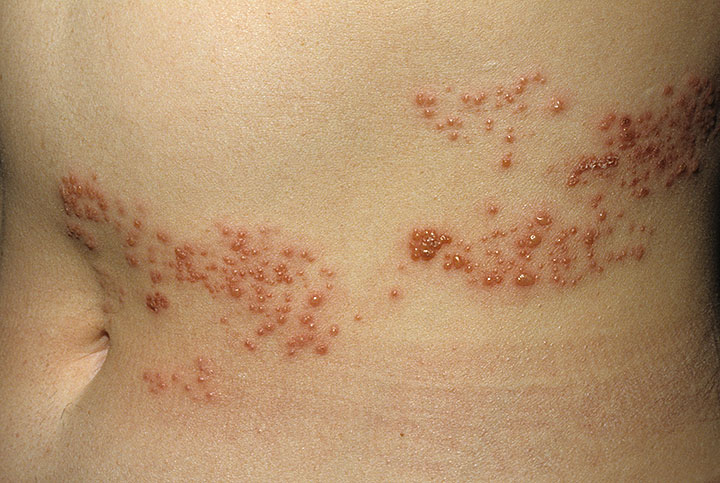Shingles, also known as herpes zoster, is a viral infection that leaves a painful skin rash. Shingles is caused by the same virus that causes chickenpox. Shingles is common among older adults and people with weak immune system. Anyone who has had chickenpox may develop shingles in their lifetime; on average, 1 out of 3 people in the United States will develop shingles.
Shingles is caused by the varicella zoster virus which is the same virus that causes chickenpox. Usually, a painful rash develops on a small section of the body or face. The rash can be painful, itchy, and sensitive to the touch. The rash forms blisters that typically scab over in 7 to 10 days and clears up within 2 to 4 weeks. Other symptoms include headache, fever and chills, nausea, body aches, fatigue, and upset stomach. Read more in depth about the symptoms of shingles.

Shingles is most common among adults older than 50 and the risk increases with age. Having certain diseases that weaken the immune system increases the risk for getting shingles. Some of these diseases include HIV and cancer. Radiation and chemotherapy can increase the risk of triggering shingles because it lowers the body's resistance. Also, certain medications such as steroids can increase the chances of getting shingles. To read more about risk factors of shingles, click here.

There are several different antiviral medicines that are used to treat shingles. These medicines shorten the length and severity of the illness, but are most effective when given early. As soon as the signs appear, it is important to see a healthcare provider as soon as possible. Pain medicines may help relieve the pain caused by shingles. In addition to this, wet compresses, calamine lotion, and oatmeal baths can help reduce itching. Shingles is preventable; there is a chickenpox vaccine and also a shingles vaccine. The shingles vaccine is recommended for adults over 50 or people with a weakened immune system who have had chickenpox. To read more about the shingles vaccine, click here.
 To watch a very informative video about the causes, symptoms, treatment, and and prevention of shingles, click here.
To watch a very informative video about the causes, symptoms, treatment, and and prevention of shingles, click here.Sources:
http://www.cdc.gov/shingles/
http://www.mayoclinic.org/diseases-conditions/shingles/basics/symptoms/con-20019574
http://www.cdc.gov/vaccines/vpd-vac/shingles/vacc-need-know.htm
https://www.youtube.com/watch?v=jCaysTThD2Y
No comments:
Post a Comment